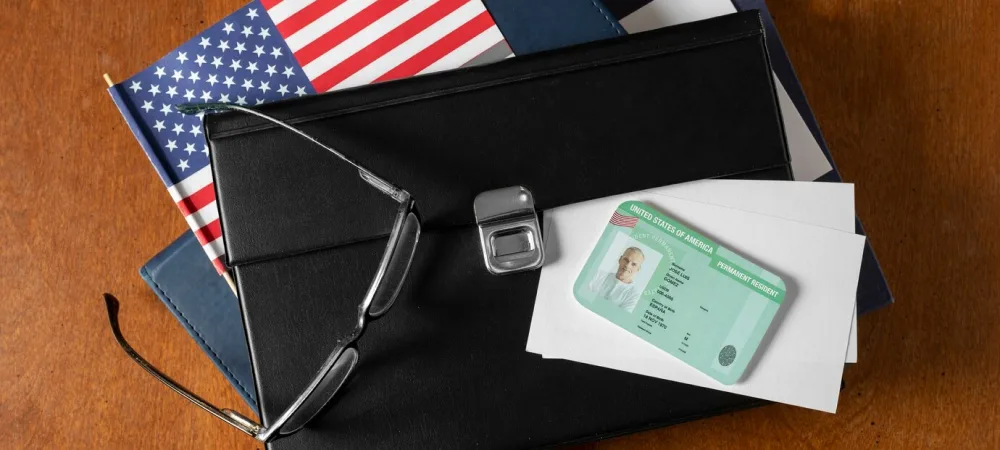Permanent residency (PR) visas offer individuals the right to live, work, and study in a foreign country indefinitely without becoming a citizen. Many people seek PR for better career prospects, high-quality education, healthcare benefits, and an overall improved quality of life. This guide covers everything you need to know about PR visas, including eligibility criteria, the application process, benefits, and tips for successful approval.
1. What is a Permanent Residency (PR) Visa?
A permanent residency (PR) visa allows foreign nationals to reside in a host country on a long-term basis. PR holders are granted almost the same rights and privileges as citizens, except for voting rights and holding certain government positions.
Key Features:
- Indefinite Stay: PR holders can live in the host country without time restrictions.
- Work and Study Rights: PR status provides access to the local job market and educational institutions.
- Pathway to Citizenship: Many countries offer PR holders a route to citizenship after fulfilling specific requirements.
2. Top Countries Offering Permanent Residency
Several countries offer attractive PR programs to skilled workers, entrepreneurs, and students. Here are the top destinations for permanent residency:
A. Canada
Canada is known for its immigrant-friendly policies and offers several pathways to PR.
- Express Entry System: For skilled workers applying under the Federal Skilled Worker Program, Federal Skilled Trades Program, or Canadian Experience Class.
- Provincial Nominee Program (PNP): Allows provinces to nominate individuals based on their skills and job market needs.
- Family Sponsorship: PR holders and citizens can sponsor eligible family members.
- Eligibility: Points-based system considering age, education, work experience, and language proficiency.
B. Australia
Australia’s PR system attracts thousands of skilled professionals every year.
- Skilled Independent Visa (Subclass 189): For highly skilled workers not sponsored by an employer or family member.
- Skilled Nominated Visa (Subclass 190): Requires a nomination from a state or territory.
- Employer Nomination Scheme (Subclass 186): For individuals sponsored by an employer.
- Eligibility: Based on points for skills, age, English language proficiency, and work experience.
C. United States
In the U.S., permanent residency is granted through a Green Card.
- Employment-Based Green Card: For professionals, skilled workers, and investors.
- Family-Based Green Card: For close relatives of U.S. citizens or PR holders.
- Diversity Visa Lottery: An annual lottery program offering PR to nationals from underrepresented countries.
- Eligibility: Based on sponsorship, employment, or winning the diversity lottery.
D. United Kingdom
The UK offers Indefinite Leave to Remain (ILR), which is equivalent to PR.
- Skilled Worker Visa: For individuals sponsored by an approved UK employer.
- Family Visa: For spouses, partners, or dependents of UK residents.
- Eligibility: Requires a certain period of continuous residence, usually 5 years.
E. New Zealand
New Zealand provides PR to individuals contributing to its economy.
- Skilled Migrant Category (SMC): For skilled workers in demand.
- Business and Investor Visa: For entrepreneurs and investors.
- Eligibility: Based on points for age, skills, and job offers.
3. Benefits of Permanent Residency
Becoming a permanent resident comes with numerous benefits that enhance your quality of life. Here are some key advantages:
A. Right to Live and Work
PR holders can reside and work in the host country indefinitely without requiring additional permits.
B. Access to Social Services
Permanent residents enjoy access to public healthcare, social security benefits, and other welfare services provided by the government.
C. Educational Benefits
PR status often provides access to subsidized education at public institutions, making it more affordable for families.
D. Pathway to Citizenship
Most countries offer PR holders the opportunity to apply for citizenship after a specific period, usually 3-5 years.
E. Freedom to Travel
PR holders can travel freely in and out of the host country. Some countries also grant visa-free travel to certain regions for PR holders.
F. Family Sponsorship
PR holders can sponsor their immediate family members for residency, allowing families to reunite and live together.
4. Eligibility Criteria for Permanent Residency
Eligibility criteria vary depending on the country and the specific PR program. However, common factors include:
A. Age
Many PR programs have an age limit, typically under 45 years for skilled migration categories.
B. Education
Higher education levels can significantly boost your eligibility, especially for points-based PR systems.
C. Work Experience
Relevant work experience in high-demand fields increases your chances of obtaining PR.
D. Language Proficiency
Proficiency in the host country’s official language (e.g., English, French) is often mandatory. Common tests include IELTS, TOEFL, and PTE.
E. Health and Character Requirements
Applicants must pass a medical examination and provide a police clearance certificate to prove they have no criminal record.
5. Application Process for Permanent Residency
The PR application process typically involves several steps. While the specifics vary by country, here’s a general outline:
Step 1: Check Eligibility
Research the PR programs offered by your desired country and assess your eligibility based on factors like age, skills, and work experience.
Step 2: Gather Required Documents
Collect all necessary documents, including:
- Valid passport
- Educational certificates
- Work experience letters
- Language test results
- Medical and police clearance certificates
Step 3: Submit an Expression of Interest (EOI)
For points-based systems, such as Canada’s Express Entry and Australia’s SkillSelect, you need to submit an EOI. This is an online profile where you provide details about your qualifications and wait for an invitation to apply.
Step 4: Apply for PR
Once invited, submit your PR application along with supporting documents and pay the required fees.
Step 5: Attend an Interview (if required)
Some countries may require an interview to assess your intent and eligibility.
Step 6: Wait for Processing
PR processing times vary by country and program. It can take anywhere from a few months to over a year.
Step 7: Receive Your PR Visa
If approved, you will receive your PR visa. Follow the guidelines on activating your residency status.
6. Common Reasons for PR Application Rejection
Understanding common reasons for PR application rejection can help you avoid mistakes. Here are a few:
- Incomplete or Incorrect Documentation: Ensure all forms are correctly filled and documents are complete.
- Insufficient Points: For points-based systems, failing to meet the required score can result in rejection.
- Medical or Character Issues: Health problems or a criminal record can lead to denial.
- Failure to Meet Financial Requirements: Some PR programs require proof of sufficient funds.
- Misrepresentation: Providing false information can result in a ban from reapplying.
7. Tips for a Successful PR Application
- Start Early: Begin gathering documents and preparing for language tests well in advance.
- Research Thoroughly: Understand the specific requirements of your chosen PR program.
- Seek Professional Help: Consider hiring an immigration consultant to guide you through the process.
- Stay Updated: Immigration policies can change frequently. Keep an eye on official announcements.
- Be Honest: Provide accurate information and genuine documents.
Conclusion
Applying for permanent residency is a significant step towards building a better future in a foreign country. Whether you aim to advance your career, access quality education, or reunite with family, PR offers numerous benefits. By understanding the requirements, preparing thoroughly, and avoiding common pitfalls, you can enhance your chances of a successful application.
Each country has its unique PR pathways and criteria, so take the time to research your options and choose the program that best aligns with your goals. With the right approach and determination, achieving permanent residency can be a life-changing milestone. Good luck!






